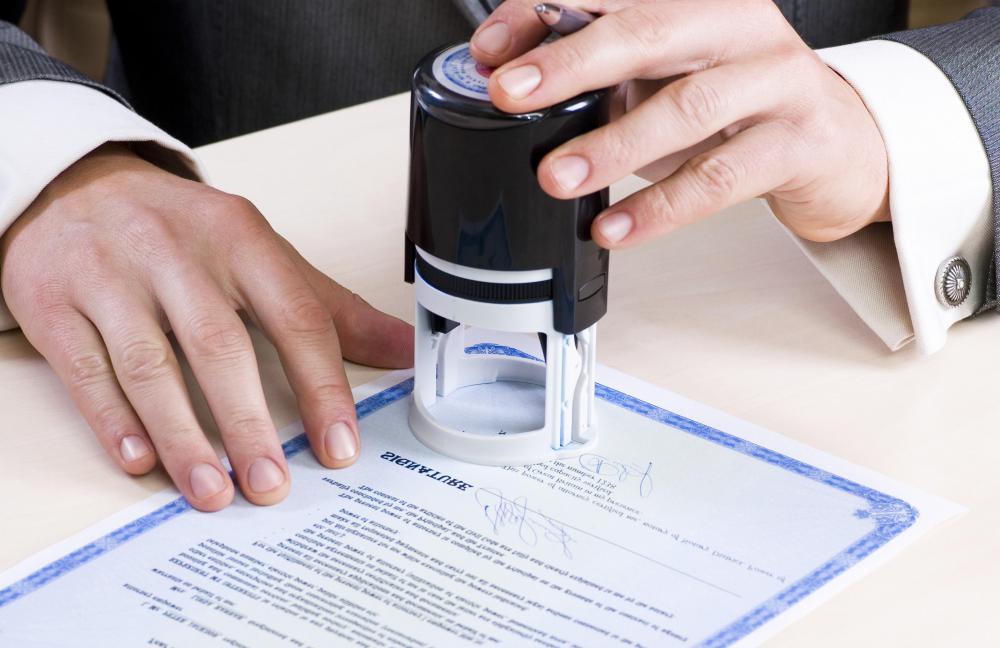At PracticalAdultInsights, we're committed to delivering accurate, trustworthy information. Our expert-authored content is rigorously fact-checked and sourced from credible authorities. Discover how we uphold the highest standards in providing you with reliable knowledge.
What are the Different Loan Closer Jobs?
Loan closings are overseen by a closer, and typical loan closer jobs include verifying the identity of the signers and ensuring that the loan documents have been correctly prepared. Mortgage loan closer jobs include completing title work and disbursing funds. Financial institutions often task loan officers with performing loan closer jobs, but title companies usually hire individuals specifically to perform loan closings.
A loan originator normally contacts a closer when the underwriting process for a loan has been completed, or is nearing completion. The originator informs the closer of the loan closer jobs that are necessary for the particular type of loan. A closer's first task is often the scheduling of the closing. Loan closers must also notify borrowers and lenders of the exact sums of money required at closing.

On the day of the closing, the first loan closer jobs are printing copies of the loan documents for all parties involved, and verifying that the dates, monetary amounts, and other key details listed in the documents are correct. If the loan officer is closing loans that they originated, they can easily cross-reference the documents with their own files. A loan closer working for a third party vendor, such as a title company, must liaise with the loan originator to make sure all aspects of the loan agreement are correctly detailed in the closing documents. The loan closers normally print two copies of the documents; one for the lender and one for the borrower.

Borrowers must provide the loan closer with a government issued form of identification, such as a passport or driver's license, prior to signing the loan documents. The loan closer cannot accept expired or altered forms of identification, and must make a visual determination as to whether the individual sitting before them is the same person show on the driver's license or passport. Many loan closer jobs require the use of a notary stamp, and consequently most full-time loan closers are registered notaries. Loan closers notarize the borrower's signature to signify that the borrower's identity was proven prior to signing the documents.

The loan closer must ensure that all loan documents were signed correctly before concluding the loan closing. Mortgage loan closer jobs include recording mortgage deeds at the local county court house and providing both the lender and borrower with a copy of the signed loan package. After the loan closing finishes, other loan closer jobs include physically taking disbursement checks to the bank or initiating wire transfers to transmit funds from the lender to the borrower or property seller.
AS FEATURED ON:
AS FEATURED ON:














Discuss this Article
Post your comments